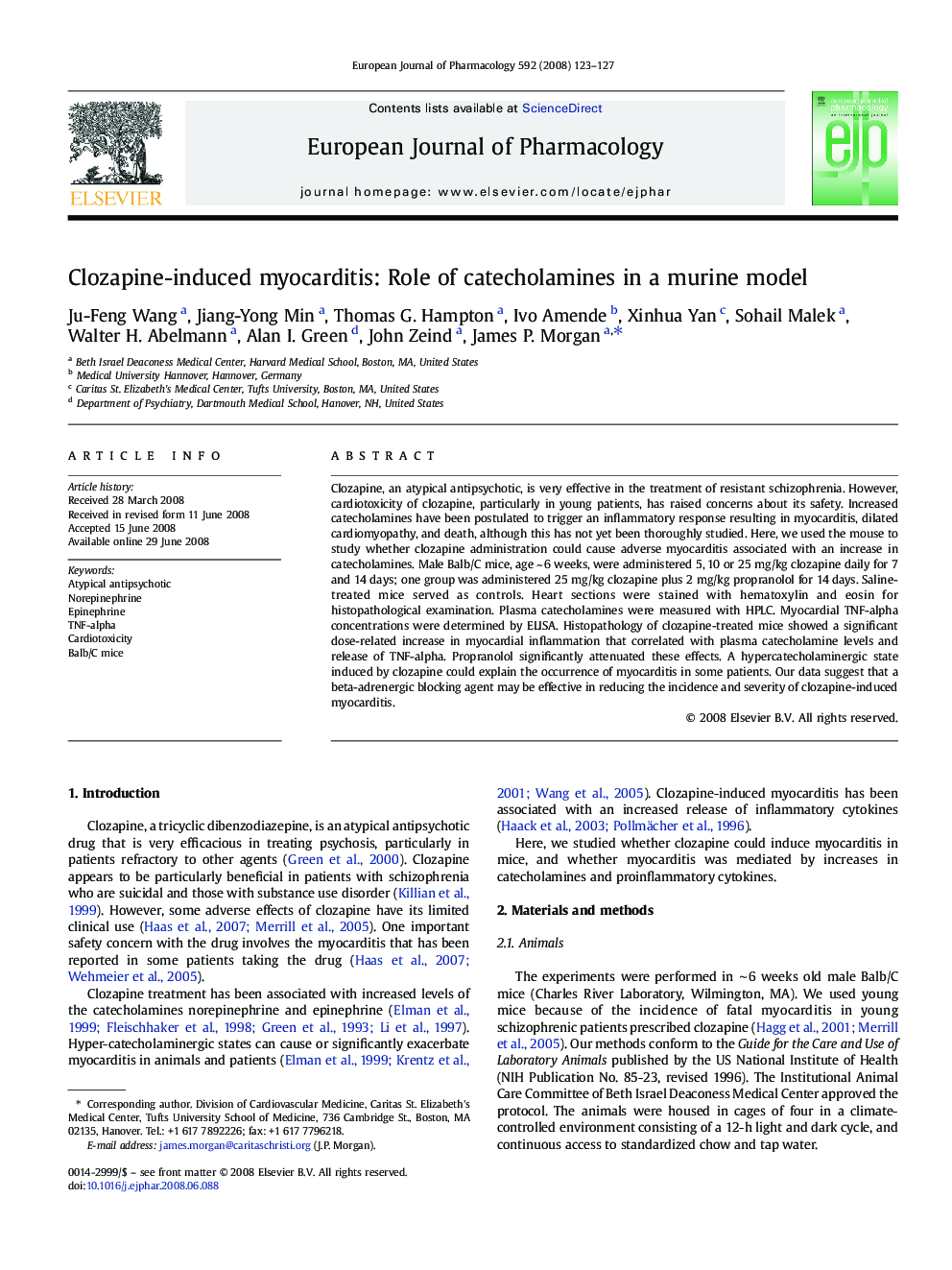| Article ID | Journal | Published Year | Pages | File Type |
|---|---|---|---|---|
| 2534872 | European Journal of Pharmacology | 2008 | 5 Pages |
Clozapine, an atypical antipsychotic, is very effective in the treatment of resistant schizophrenia. However, cardiotoxicity of clozapine, particularly in young patients, has raised concerns about its safety. Increased catecholamines have been postulated to trigger an inflammatory response resulting in myocarditis, dilated cardiomyopathy, and death, although this has not yet been thoroughly studied. Here, we used the mouse to study whether clozapine administration could cause adverse myocarditis associated with an increase in catecholamines. Male Balb/C mice, age ~ 6 weeks, were administered 5, 10 or 25 mg/kg clozapine daily for 7 and 14 days; one group was administered 25 mg/kg clozapine plus 2 mg/kg propranolol for 14 days. Saline-treated mice served as controls. Heart sections were stained with hematoxylin and eosin for histopathological examination. Plasma catecholamines were measured with HPLC. Myocardial TNF-alpha concentrations were determined by ELISA. Histopathology of clozapine-treated mice showed a significant dose-related increase in myocardial inflammation that correlated with plasma catecholamine levels and release of TNF-alpha. Propranolol significantly attenuated these effects. A hypercatecholaminergic state induced by clozapine could explain the occurrence of myocarditis in some patients. Our data suggest that a beta-adrenergic blocking agent may be effective in reducing the incidence and severity of clozapine-induced myocarditis.
